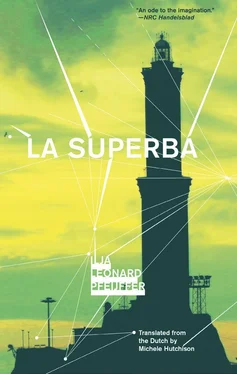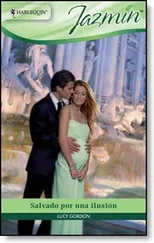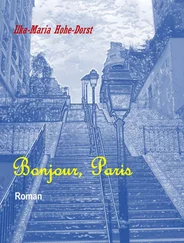I’d invented a game, and also come up with an official name for it. You’re either a celebrated writer or you aren’t. It’s called “girl surfing.” The rules are simple. You pick out a random girl as she walks by and start to follow her. If you tend to go on aimless walks anyway, you might as well walk after a random girl. As you follow her, you fantasize about her. About what she’s like up close and under all those clothes, about how she’d sigh and reach for a half-empty packet of cigarettes on your bedside table. You keep on doing this until you see a prettier girl. Then you swap and carry on following her until you see an even prettier girl. The game becomes more and more satisfying the longer you play it. And in the meantime you get to know the city. To add a didactic element to the game, I invented the extra rule that I had to fantasize in Italian. I would learn the most by doing so out loud, but I realized I’d better be careful with that. I caught a fantastic wave during the week, one of the best since I arrived in Genoa. She was small and olive-colored with a nonchalant miniskirt and racy boots. I got to follow her all the way from Maddalena, past Molo, to Portoria. My fantasies became ever more colorful and explicit. I was able to express them beautifully in Italian. But at a certain point, I was standing close to her in a herd of commuters waiting for a traffic light to turn green, and I’d forgotten that, for autodidactic reasons, I was speaking out loud. I decided to switch then, even though my fantasies at that very moment were about what I would do when she reached the heavy door to her house and rammed the big key with conviction and force into her lock.
Not much surfing to be done today. Even for the waves it was Sunday. Here and there, a tired tourist in Bermuda shorts was encouragingly patted on her fat rolls by the skinny man of the moment carrying the map and the rucksack containing important things firmly strapped to his back. “Where are our international travel insurance papers? Have you seen our international travel insurance papers?” And she didn’t even recognize me. I was alone.
What had I achieved up to now?
19.
“You’ve made a big impression in Centro Storico. Everyone knows you.”
Her name was Cinzia. She was a young, pretty girl with a long face. I recognized her as the waitress from Caffè Letterario on Piazza delle Erbe. The one with the red tables. I often went there since I knew what it was called. But there was something odd about her. I saw her too often during the day, and too often on her own for an Italian girl of her age, especially for an Italian girl that went about dressed in a suggestive top, deeply cut, with an open back, no sleeves, and shorts. She had lovely legs and wore high heels. She wore makeup, but it was subtle and tasteful. Almost every afternoon she sat on her own at a table in the Bar of Mirrors, studying. She came from Sardinia and was studying education in Genoa. She’d been here two years. Sometimes I saw her with Don, an emeritus professor of English language and literature in his seventies who had been living in a hotel room for twenty years with a view of the seven bars on the Piazza delle Erbe. He had a Union Jack hanging out of his window, didn’t speak any Italian, and survived on a sole diet of gin and tonic. “ Capuccino senza schiuma ,” as he called it. But I hadn’t seen him for a few days now, and she was sitting on her own in the Bar of Mirrors, and she came outside to smoke, and because there weren’t any free tables on the terrace, I invited her to join me at mine.
“That’s what you say.”
“It’s true. I was sitting at this table yesterday, too, and there were other people sitting here, people I didn’t know, and they were talking about you. About you. They were wondering who you were and what you were doing here.”
She was attracted to older intellectuals. That must be her problem. You saw it every evening on Italian TV. It didn’t matter which program you watched. Whether it was infomercials, which it mostly was, or a talk show, or a quiz, or a sports program, there was always a light blue background with a handful of young, pretty, stupid girls in bikinis and a single older intellectual, sweating in his suit, making jokes about the girls — only they were too thick to understand them: a golden formula, I give you that. The man uses a few subjunctives, one of the girls doesn’t get it and says something ungrammatical, the audience screams, and the girl has to take off her bikini top as punishment, causing the intellectual of the moment to make another cutting remark, causing the audience to scream again.
All of Italy is made like that. It’s the man’s job to make cutting remarks and the woman’s job to take her top off afterward. In any case, the gender roles are clear. You know who’s who. That’s the way the Church likes it. A man shouldn’t suddenly turn out to be a woman or vice versa. I wondered what it would be like to take off Cinzia’s top.
“That’s what I like about you. I really appreciate that. You are the first — no, second — man I’ve met who hadn’t immediately wanted to take off my top after we’ve exchanged just a couple of words.”
“Maybe that’s because I’m not Italian.” I smiled in a very mysterious, intellectual manner.
“Maybe.” She fiddled with her top a little.
“I always find Italian men quite — how do you say it in Italian — quite expressive.”
“Women too,” she said.
20.
Before she left, Cinzia gave me a mission: I had to find the Mandragola. I was charmed by the medieval allure of the quest, and I wanted to ask her whether I could wear the silken handkerchief embroidered with her initials beneath my shining breastplate during my long, long journey to traverse sevenfold mountains of sevenfold rivers, and sevenfold woods. I would count upon her snow-white handkerchief to protect me from griffins and seas of fire, witches and dragons that drenched themselves in the dripping blood of druids.
The Mandragola is a legendary flower which grows in just one place and blooms only once in a hundred years. The magic scent of her blossom could save mankind. “It’s a bar. More like a kind of nightclub.” “And where is it then?” “I’m not telling you. I’ll be working at the Caffè Letterario tomorrow. Come and let me know if you’ve found it.”
Her handkerchief certainly came in handy. My first hunch was that it would be in the area around Maddalena, which has those kinds of little squares like Piazza della Lepre, Piazza delle Oche, and Piazza della Posta Vecchia — squares as big as a parking spot, which translocate mysteriously each night. There are tiny bars on them but they translocate, too. The art is to catch the streets during their nighttime displacements. But it happens inaudibly and very fast. Or very slowly. I’m still not sure about that. I walked in circles and squares around Palazzo Spinola, Vico della Rosa, Vico dietro il Coro della Chiesa die Santa Maddalena. These are places where the sun never shines. It was nighttime. The shadows had eaten up the sun. The prostitutes and tourists had gone. The alleys were the domain of rats, pigeons, and pickpockets, as they almost always were. Witches hissed at me. A person I didn’t trust asked me for a light. A rogue roared with laughter in an alleyway.
I went off to search the other side of the Via Luccoli, in Sestiere del Molo. I knew this neighborhood better but I realized that there could be streets between Via San Bernardo and the towers of the Embriaci that I didn’t know. It all goes uphill there toward Castello, to the architectural faculty and the Sant’Agostino cloisters, and I don’t like going uphill. So the Mandragola might very well be located there. These paths had not been trodden recently. Or if that wasn’t the case, they’d been shat upon by vermin even more recently. There was a tinkle of glass in the distance. Closer by there was screaming. I strayed until I happened upon the Piazza Sarzano, near the Metro. I hadn’t found the Mandragola. But in any case, I knew where I was again. And that wasn’t good. I don’t feel at home in this neighborhood. During the day Piazza Sarzono is too hot, and at night it’s deserted, while the alleys like Via Ravecca are populated by distrustful elderly Genoese who don’t want to have anything to do with foreigners, not even white ones.
Читать дальше












